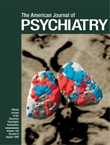Influence of Comorbid Alcohol and Psychiatric Disorders on Utilization of Mental Health Services in the National Comorbidity Survey
Abstract
OBJECTIVE: This study sought to determine how comorbidity of psychiatric and substance abuse disorders affects the likelihood of using mental health services. METHOD: The analysis was based on data on adults aged 18–54 years in the National Comorbidity Survey (N=5,393). Users and nonusers of mental health and substance abuse services were compared in terms of their demographic characteristics, recent stressful life events, social support, parental history of psychopathology, self-medication, and symptoms of alcohol abuse/dependence. RESULTS: The prevalence of service utilization varied by diagnostic configurations. Comorbid psychiatric or alcohol disorders were stronger predictors of service utilization than a pure psychiatric or alcohol disorder. Factors predicting utilization of services differed for each disorder. CONCLUSIONS: Since comorbidity increases the use of mental health and substance abuse services, research on the relationship of psychiatric and alcohol-related disorders to service utilization needs to consider the coexistence of mental disorders. Attempts to reduce barriers to help seeking for those in need of treatment should be increased.



